.
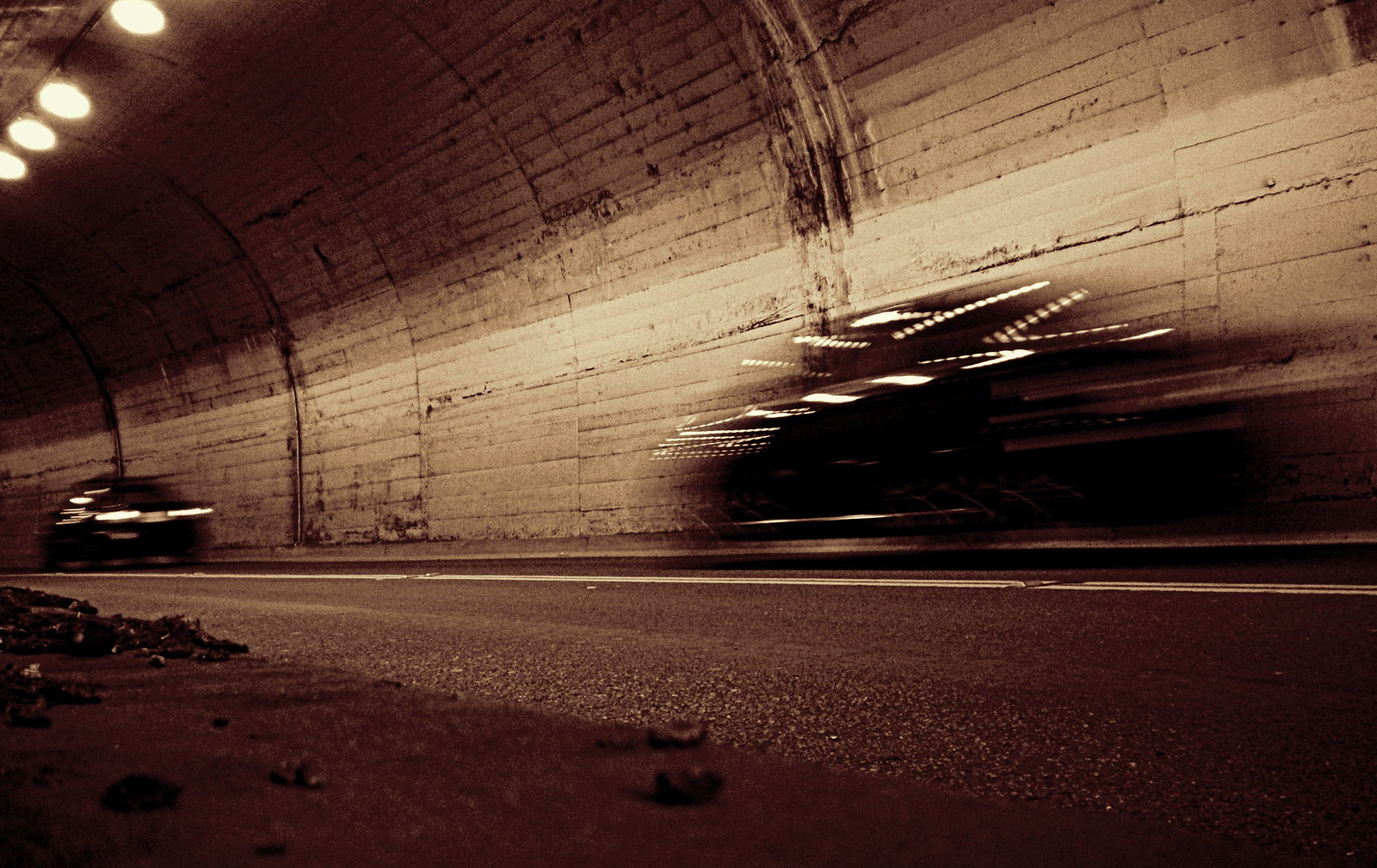
Tunnel traffic. Northbrae tunnel, Berkeley: photo by TJ Gehling, 20 December 2013
Adolescent faun with soft unformed horns
wandering back yards and side paths for a drink
mother having lately disappeared
to be living is to be among those lost
in traffic with the three surviving crows
of the family of five that was here last week
swooping for scraps between lethal speeders
on the freeway feeder
Fresh crow corpses crushed feather bones by
side of roadway
Cars racing past nonstop uphill to swell
the flood of cars racing in and out of the Tunnel
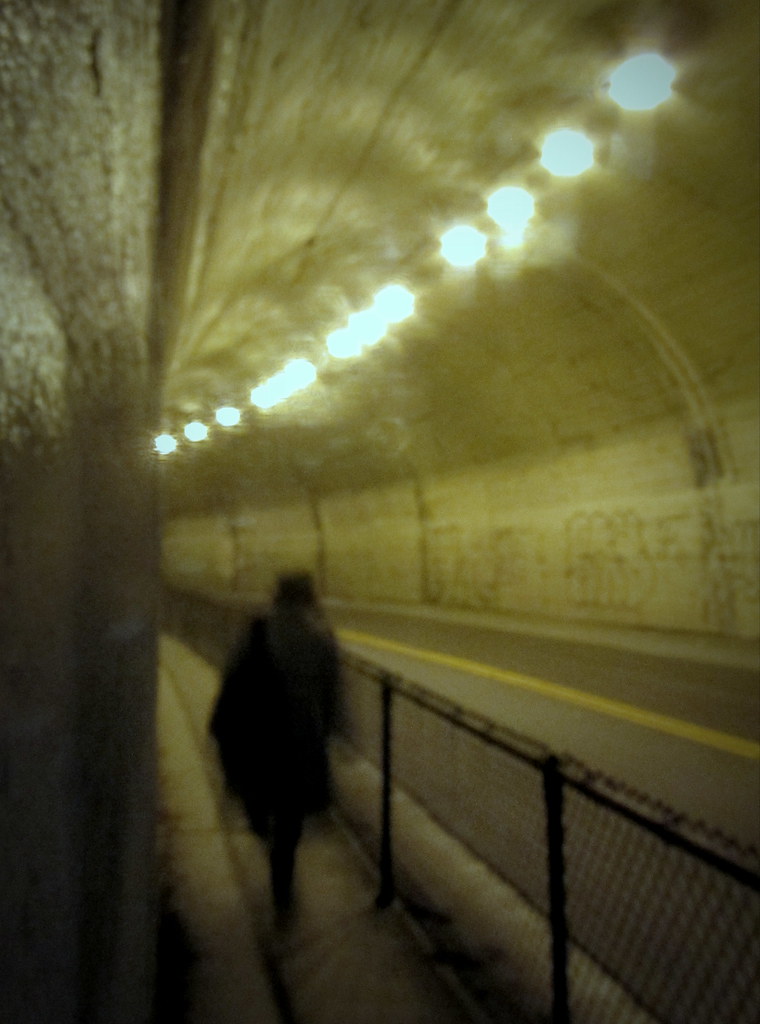
Northbrae tunnel walkway: photo by TJ Gehling, 18 January 2013
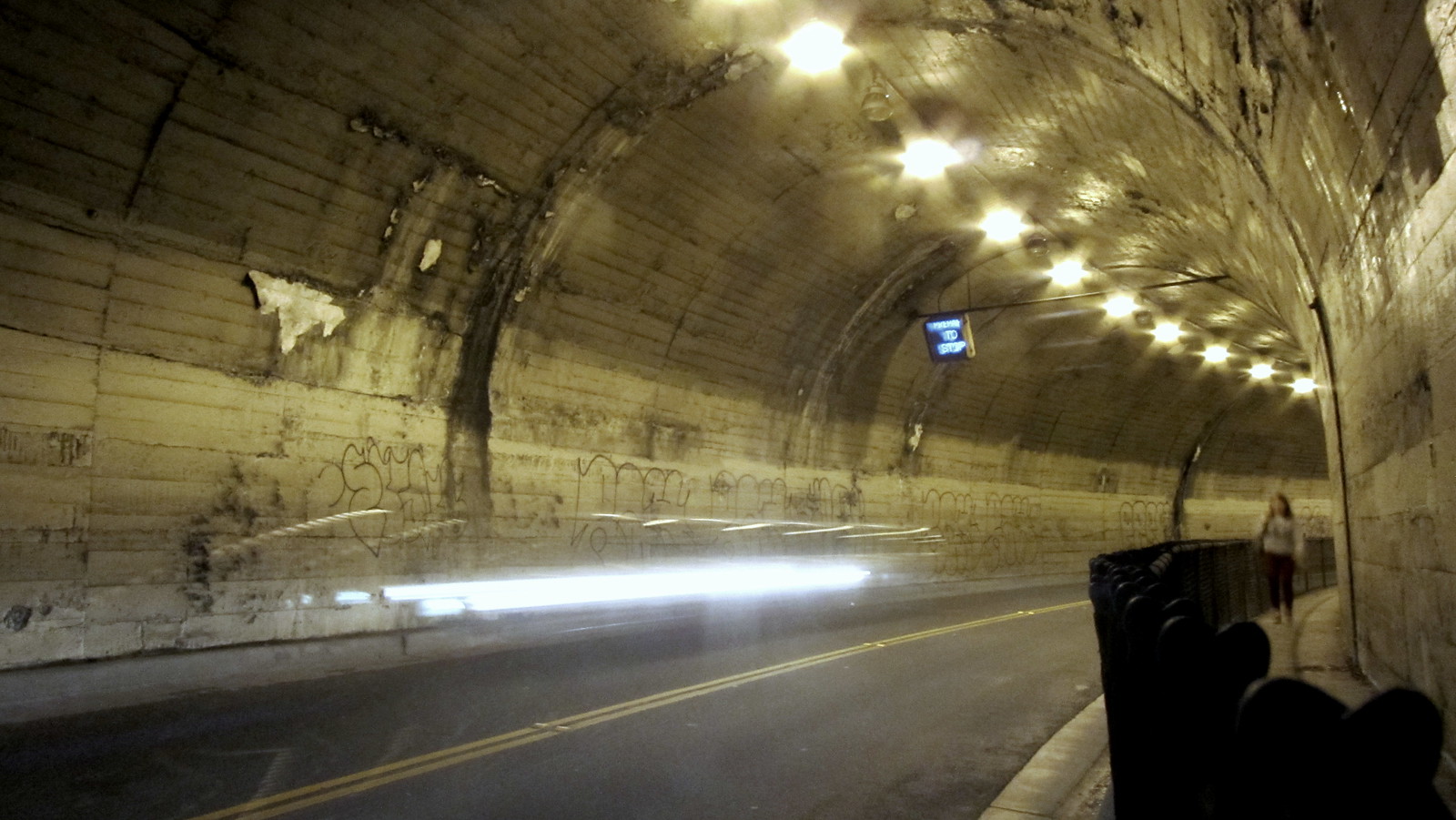
Northbrae tunnel: photo by TJ Gehling, 18 January 2013

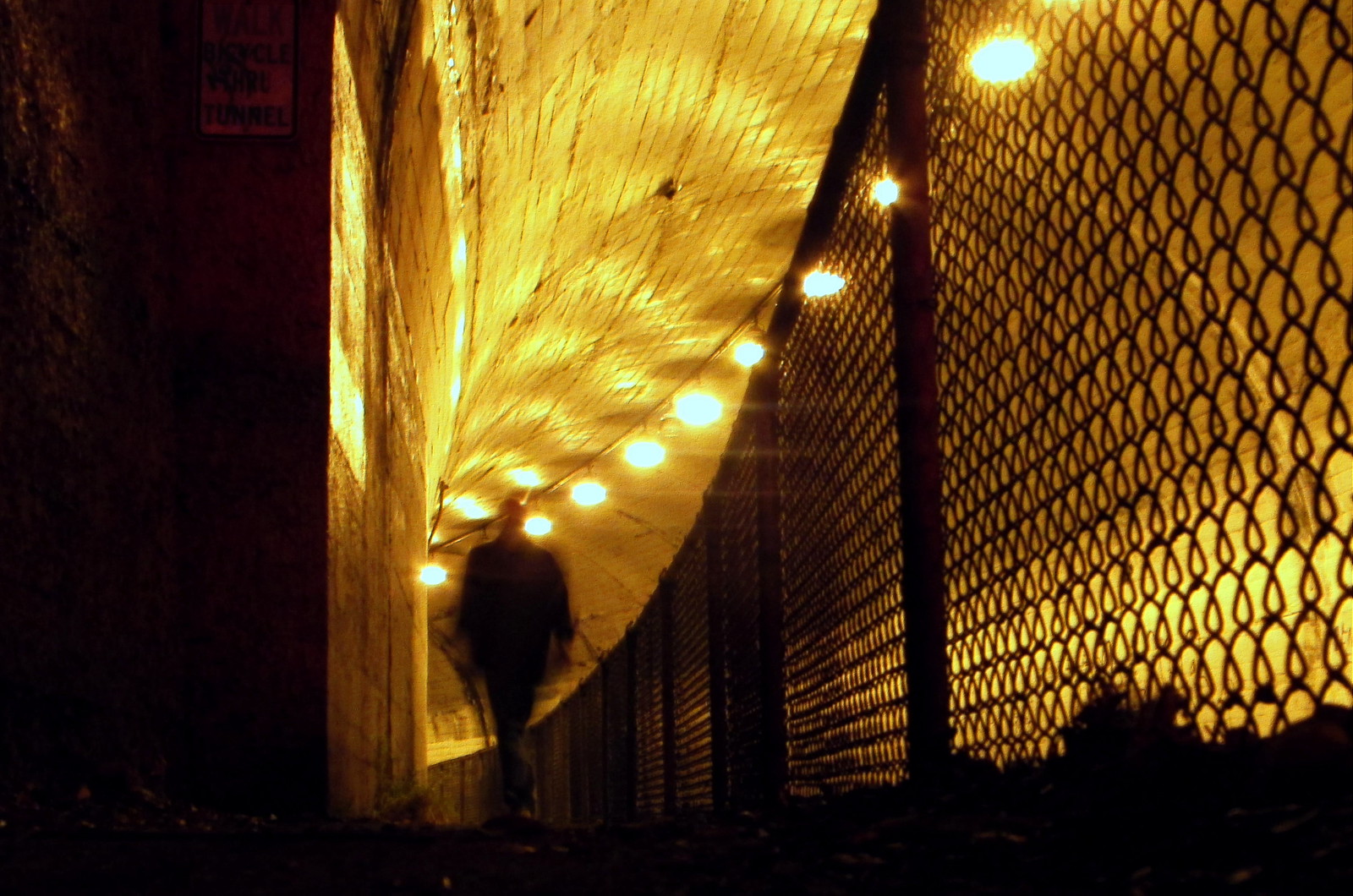
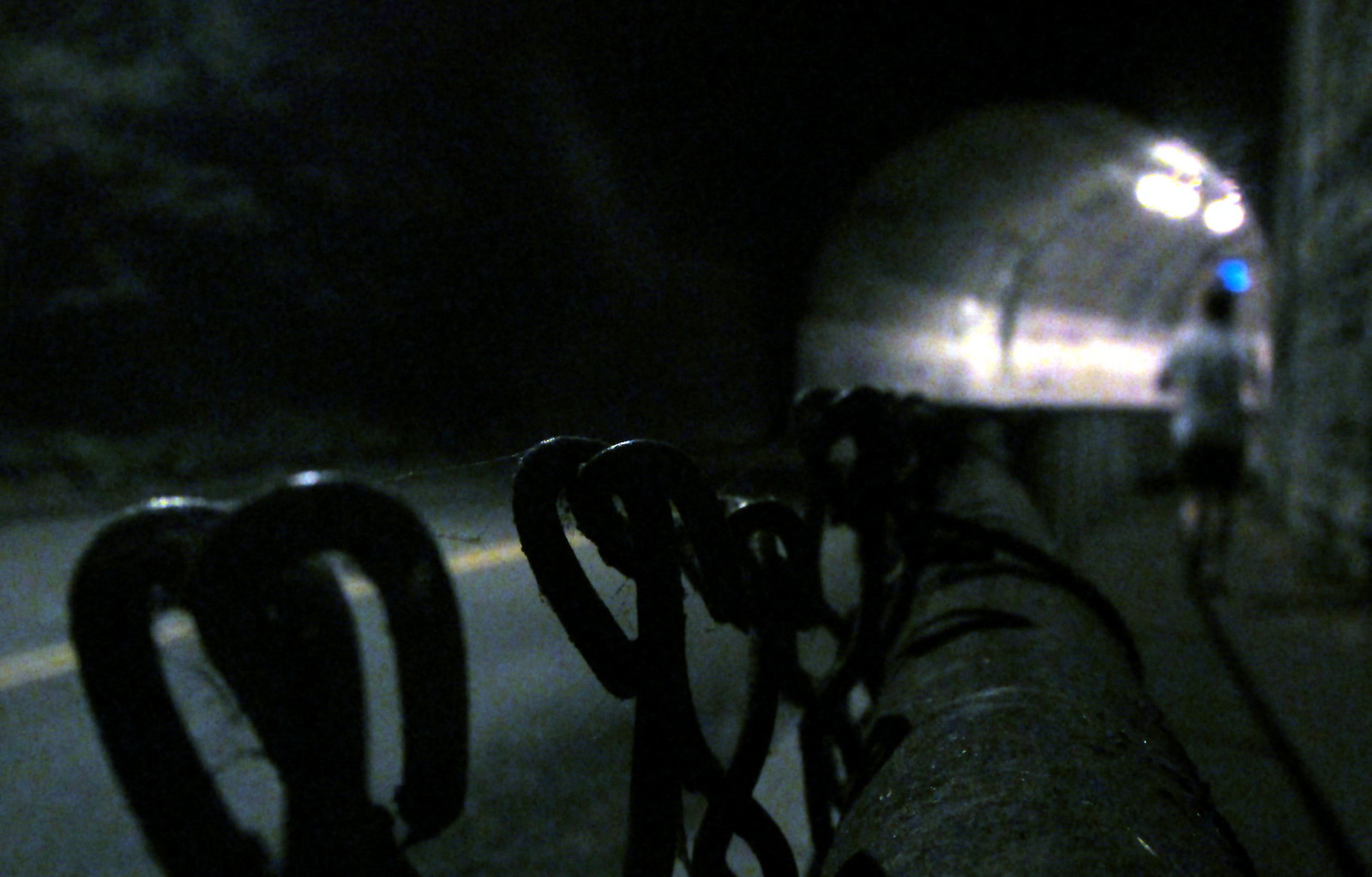
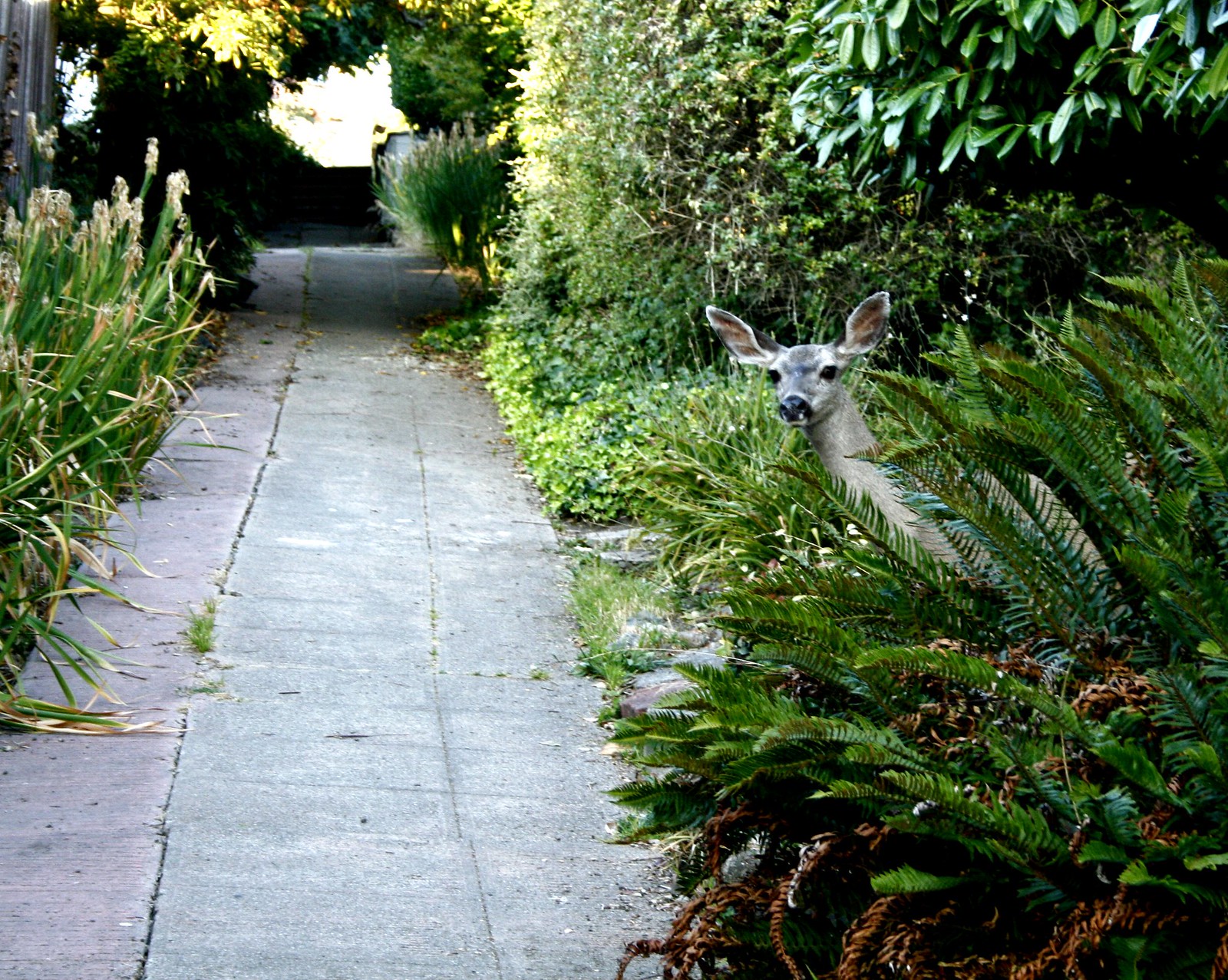
another brilliantly observed and articulated snapshot of our time(s)
ReplyDeleteI feel just like that "adolescent faun with soft unformed horns / and to be living is to be among those lost in traffic" torn from leafy munchable sweet aromatic habitat into tunnel vision cementaries... soft/hard, formed/unformed... lost/found... Found at least and at last in your terrific poem... encapsulated and briefly liberated.
ReplyDelete(I have to comment on my intended typo "cementaries" which might be spelled "cement-aries" the way Duncan used to pronounce "Muse-eum".)
ReplyDeleteAs I was going about musing on your poem, I recalled (being born in 1940) what an influence the Disney Bambi movie had on me, maybe scarred for life (the mother's shotgun death and disappearance was pretty cruel...) and your faun (as maybe every faun ever since in the nudgable consciousness and memory ocean) somehow partakes... a poignant "stereotype" thanks to those cartoon eyes... though the grown-up Bambi stag at the end still thrilling...
ReplyDeleteMichael and Abdal-Hayy, many thanks.
ReplyDeleteA "tunnel-vision cementary", exacto!
The terrific surge in tech money that's transformed the Bay Area into something unrecognizable if you're older than 24 and not part of the money-surge would be a wonder to behold, were it not so terribly depressing.
But the effects on those who are old and in the way and can't get out must be counted as nothing next to the inevitable effects on local wildlife -- those innocent creatures guilty of attempting to survive in proximity to (as it sometimes seems) every hurry-up, get-out-of-my-way automobile driver on earth.
Compounded by a drought which has now forced animals down out of the hills into the traffic maelstrom, where the only conceivable future for them is eradication.
The Tunnel, with its considerable attendant earth-works, was created 105 years ago as a massive cut-and-cover project by the Southern Pacific Railroad, designed to carry its newly electrified train line across the Bay -- a branch of the Oakland-San Francisco system, extending that system north into the then developing Berkeley neighborhoods. That arrangement lasted until 1939, when the SP subsidiary Interurban Electric Railway began its very brief (c. 18 month) period of service on the line through the Tunnel. The tracks were then used by the Key System, which ran electric trolleys on the line until 1958. This was the last period in which a useful public transit system served the local neighborhoods; indeed an actual, useful small area of shops, at the south end of the Tunnel, could actually be reached on foot by local citizens. But the Key Route trolleys, along with that small cluster of useful shops, are but forgotten history now.
Within five years of the termination of the bridge/train electric service in 1958, road construction at the north end of the Tunnel had turned it into a two-lane automobile route, with an efflorescence of "boutique" commercial development at the north end, and a steady flow of automotive traffic in the Tunnel growing heavier and heavier over the years. The derelict interior, a suffocating tomb of trapped emissions, is a toxic nightmare at all times; at rush hour, to enter it is to take one's life in one's hands. Over four decades, I repeatedly braved it, never without serious misgivings, whether on bike or on foot. Those days are long gone now. The Tunnel for us is not a conduit but a barrier, an impasse. But of course we are of that extreme minority, two-footed natives who don't drive.
Tom,
ReplyDeleteLovely and frightening pairing of poem and images. The sight of pedestrians in the tunnel (or any tunnel) is a jolting one for the driver. Vulnerability and liability collide in the mind.
David
David,
ReplyDeleteThe Tunnel is 500 feet of-turn-of-the-last-century big-scale excavation -- keeping in mind the central role of industrial excavation aka mining in the history of this place -- which was not originally meant for autos much less pedestrians or bicyclists. But when the "cut-and-cover" passage was given over to "public" use as a thoroughfare, of course, this being California, it was given over to autos, with pedestrians never more than an afterthought. But there was never room for vehicles; as it is, the two lanes are so close that there's no margin of error whatsoever. Then too, local geology -- a system of ridges -- required a tight "blind" swerve inside the tunnel, making it even more crazy-dangerous to start with; yes, I suppose taking that curve can be daunting for drivers. But jeez, everybody else! The pedestrian/bike concession is a three foot wide strip of paved walkway hugging one wall, separated from traffic only by an ancient broken-down metal barrier. Not forgetting that buses and trucks as well as cars stream through this very tight passage. The noxious impact of the vehicle fumes hits you a few feet into the tunnel; if in a car, obviously one keeps the windows rolled up; if not in a car... one instinctively attempts to stop breathing; but 500 feet can seem a pretty long haul, when you're not breathing.
There's always taking the long way round, a detour of about half a mile; or scaling the steep steps that take one up and over the top.
When all this was engineered in the first place, local boosters, primarily university-affiliated, were motivating to have the state capital moved here from Sacramento.
But -- you know, California. White people will never stop dicing and slicing and digging things out of and spilling things on and otherwise abusing the natural bounty they claim as their own, though in fact it isn't.